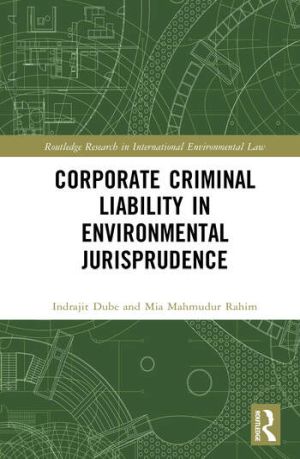
Environmental jurisprudence is a dynamic field that integrates insights from various disciplines, including basic sciences, earth science, economics, and law. At its core, this discipline emphasizes the importance of enforcing rights, as environmental pollution poses significant threats to individuals and society as a whole. The repercussions of pollution are not confined to the immediate vicinity; they can reverberate across vast regions and impact countless future generations. Addressing pollution as a wrong or crime demands a nuanced understanding of the law, making the study of environmental jurisprudence essential.
This book explores corporate polluter liability within the framework of environmental jurisprudence. While protective measures for the environment have been embedded in various statutes since the early 20th century, the notion of environmental jurisprudence has only recently come to the forefront of legal discourse. This field is crucial for safeguarding the natural and legal rights of individuals, communities, and the state. With a comprehensive approach that encompasses both national and international dimensions, this book critically engages with the foundational concepts of environmental jurisprudence, exposing the rampant environmental violations perpetrated by corporations and outlining how these entities can be held accountable within regulatory frameworks. Furthermore, it provides a thorough analysis of essential international instruments aimed at combatting corporate-induced environmental degradation, offering recommendations to elevate corporate criminal liability within the realm of environmental jurisprudence scholarship.
Highlighting the urgent need for accountability but also inspiring action toward a sustainable future, this book will interest legal scholars researching on criminal liability and environmental law.